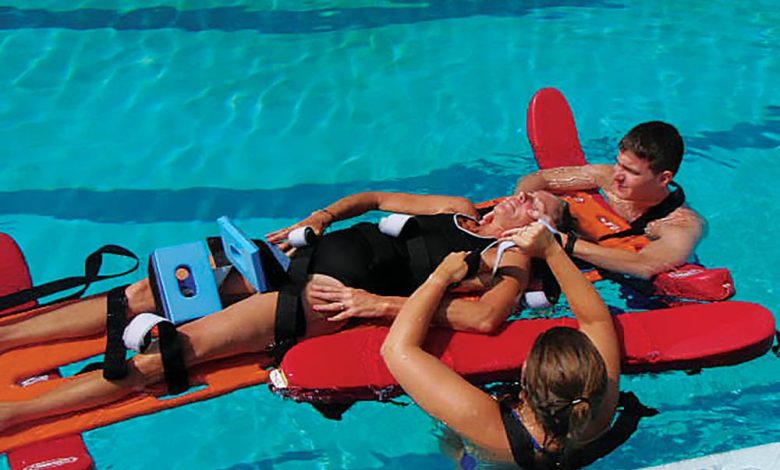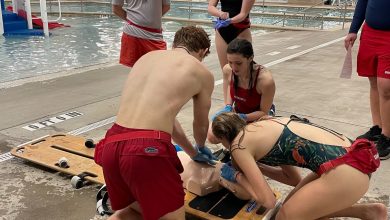Here is What’s Good About Lifeguard courses near me

Are you a water enthusiast with a strong desire to help others and ensure their safety? If so, becoming a lifeguard courses near me might just be the perfect career path for you. Lifeguards play a crucial role in maintaining the safety of swimmers at pools, beaches, and other aquatic facilities. In this comprehensive beginner’s guide, we’ll walk you through everything you need to know about becoming a lifeguard, from the essential skills and training to finding lifeguard courses near you.
Section 1: The Role of a Lifeguard
Before we dive into the specifics of becoming a lifeguard, let’s start with a clear understanding of the responsibilities that come with the job. A lifeguard is a trained professional responsible for preventing accidents and responding to emergencies in aquatic environments. Their primary duties include:
Surveillance: Lifeguards constantly scan the water to identify potential hazards or distressed swimmers.
Rescue: They must be ready to spring into action, using their lifesaving skills to rescue swimmers in trouble.
First Aid: Lifeguards provide initial medical care when necessary, from administering CPR to addressing minor injuries.
Rule Enforcement: Ensuring that pool or beach rules are followed to maintain a safe environment.
Education: Educating the public on water safety and rules.
In essence, lifeguards are the unsung heroes of aquatic venues, always ready to ensure the well-being of swimmers.
Section 2: Prerequisites for Becoming a Lifeguard
Lifeguard instructor training and certification there are a few prerequisites you must meet:
Age: Most lifeguard certification programs require candidates to be at least 15 years old. Some programs may have higher age requirements, so check with your local course providers.
Physical Fitness: Lifeguarding is a physically demanding job. You should be a strong swimmer and have good stamina and endurance. A pre-course swimming skills test is often part of the certification process.
CPR and First Aid Certification: It’s beneficial to have basic CPR and first aid knowledge before starting lifeguard training. This knowledge can be obtained through separate courses if needed.
Passion for Water Safety: Lifeguarding is not just a job; it’s a commitment to ensuring the safety of others in aquatic environments. A genuine passion for water safety is crucial.
Section 3: Lifeguard Training and Certification
To become a certified lifeguard, you’ll need to complete a comprehensive training program. Here’s what you can expect from lifeguard training:
Finding Lifeguard Courses Near You: Start by searching for “lifeguard courses near me” online or contacting your local community centers, schools, or aquatic facilities. Many accredited organizations offer lifeguard training, including the American Lifeguard Association.
Course Duration: Lifeguard training typically consists of several sessions, including both classroom and practical training. The duration may vary, but it usually takes about 25-30 hours to complete the course.
Curriculum: The training curriculum covers a wide range of topics, including water rescue techniques, first aid, CPR, AED usage, and lifeguarding skills. You’ll also learn about pool and beach management, communication, and legal responsibilities.
Written and Practical Exams: At the end of your training, you’ll be required to pass written and practical exams to demonstrate your knowledge and skills. Successful completion of these exams is essential for certification.
Certification Renewal: Lifeguard certifications typically expire after two years. To maintain your status as a lifeguard, you’ll need to undergo periodic re-certification, which involves updating your skills and knowledge.
Section 4: Essential Lifeguard Skills
Now that you’re familiar with the training process, let’s delve into the essential skills you’ll acquire during lifeguard training:
Swimming Proficiency: Lifeguards need to be strong swimmers capable of covering distances quickly. You’ll learn various swimming techniques, including rescue strokes and approaches.
Rescue Techniques: Lifeguard training emphasizes the proper methods for rescuing distressed swimmers. You’ll practice using rescue equipment such as tubes and buoys.
First Aid and CPR: You’ll become proficient in providing first aid, administering CPR, and using an automated external defibrillator (AED) when needed. These skills can save lives in emergency situations.
Communication: Effective communication is vital for coordinating rescues and maintaining a safe environment. Lifeguards learn how to use hand signals, whistles, and verbal commands to convey information.
Decision-Making: Lifeguards must make quick and informed decisions during emergencies. Training prepares you to assess situations and take appropriate action.
Section 5: Finding Job Opportunities
With your lifeguard certification in hand, it’s time to explore job opportunities in the field. Here’s how to get started:
Local Pools and Beaches: Check with your local swimming pools, water parks, and beaches for job openings. They often hire seasonal lifeguards, especially during the summer months.
Aquatic Centers: Consider working at aquatic centers, community pools, or indoor facilities, which may offer year-round employment opportunities.
Resorts and Hotels: Many resorts and hotels have pools and water amenities that require lifeguard staff. Look for openings at vacation destinations in your area.
Schools and Colleges: Some educational institutions hire lifeguards for their swimming facilities. Contact nearby schools and colleges to inquire about job openings.
Fitness Clubs: Large fitness clubs with pools often employ lifeguards to ensure the safety of their members.
Online Job Portals: Explore online job portals and websites dedicated to aquatic jobs, where you can search for lifeguard positions in your area.
Also Read About: What are the best places to stay in Goa for couples?
Section 6: Lifeguard Career Advancement
Becoming a lifeguard is just the beginning of your aquatic career. As you gain experience and expertise, you can explore opportunities for career advancement:
Senior Lifeguard: Senior lifeguards take on more responsibilities and may oversee junior lifeguards. This role involves managing shifts and assisting in training.
Aquatic Supervisor: With additional training and experience, you can advance to a supervisory role, overseeing the entire lifeguard team and aquatic facility operations.
Water Safety Instructor: Consider becoming a certified water safety instructor (WSI) to teach swimming lessons and water safety courses.
Emergency Medical Technician (EMT): Some lifeguards pursue EMT certification to provide advanced medical care in aquatic emergencies.
Aquatic Director: At larger facilities, you can aspire to become an aquatic director, responsible for program development and management.



